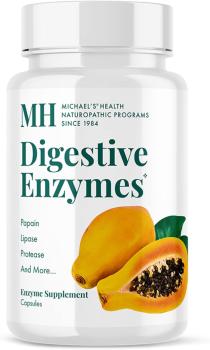What Does Magnesium Do?
Our bodies rely on magnesium for more than 300 metabolic functions.
This mineral helps maintain immunity, bone strength, and a steady heart rhythm.
Magnesium also supports muscle and nerve function, regulates blood sugar levels and blood pressure, and enhances energy.
Research also indicates this mineral can act like an antidepressant.
Why Magnesium Is The Mood Mineral
Research shows that people with major depression have less magnesium in their bloodstream than those who aren’t depressed.
While certain antidepressants can significantly increase magnesium levels in those who suffer from major depression, people can also experience relief from depressive symptoms by simply taking magnesium.
Studies
-
For Depression
A study of people with mild to moderate depression who supplemented with magnesium chloride for six weeks experienced a clinically significant lessening of both depression and anxiety symptoms.
-
The lift occurred after two weeks of daily supplementation of 248 milligrams of magnesium chloride.
For Seniors
In one small trial, elderly depressed patients with Type 2 diabetes and magnesium deficiency were randomly assigned to receive either a magnesium chloride solution or an antidepressant over the course of 12 weeks.
The magnesium solution proved as effective for treating depression as the antidepressant.
Additionally, magnesium levels in the blood samples of the group taking this mineral were significantly higher than those taking the antidepressant.
Food Sources of Magnesium
A large Norwegian study of people from 46 to 74 found that those who ate fewer foods containing magnesium experienced more depression. Good food sources of magnesium include:
- green vegetables
- spinach
- peas
- legumes
- beans
- soybeans
- peanut butter
- nuts
- almonds
- cashews
- whole, unrefined grains
- yogurt
Causes of Magnesium Deficiency
Despite all the food sources containing magnesium, many Americans still don’t get enough of it in their diet. Other possible reasons for low magnesium levels include overactive stress hormones or too much dietary calcium.
While symptoms of outright magnesium deficiency are rare, people with low magnesium levels may not have enough to protect against cardiovascular disease and immune problems.
Magnesium Deficiency in Seniors
Seniors, especially men older than 70, are susceptible to mineral deficiencies as gastrointestinal disorders and impaired digestive absorption can lower magnesium levels.
The elderly are also more likely to be drugs—diuretics, antibiotics, and meds used to treat cancer—that lower magnesium further.
Precautions
Always discuss magnesium with a healthcare provider if you’re considering using supplements to help with depression. Some forms and dosages may cause abdominal cramps and diarrhea.
Also, those with kidney disease may not be able to excrete excess amounts of the mineral so should avoid taking supplements unless prescribed by a healthcare provider.





